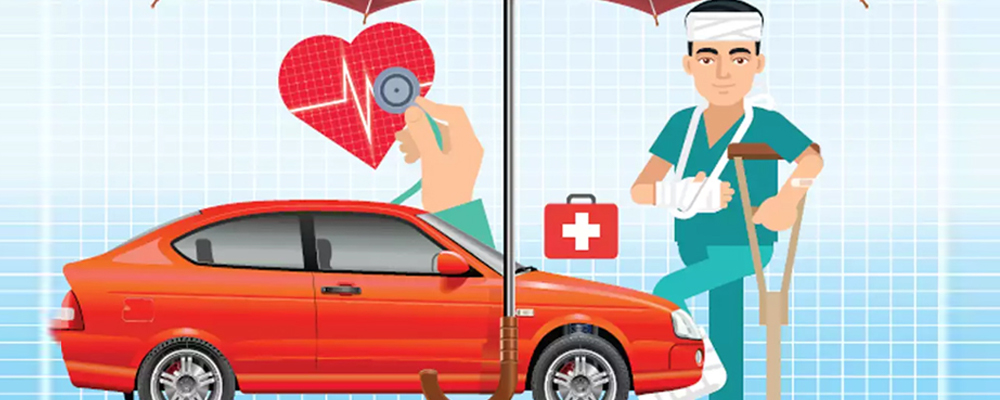Any size accident can occur. Additionally, recovery-related fees can pile up. It’s become harder for consumers to rely only on their core medical insurance to cover all of their health care needs as more and more companies move to high-deductible health plans (HDHP). The average premium for family coverage has climbed by 22% over the past five years and by 54% over the past ten years, according to the 2019 Employer Health Benefits Survey by the Kaiser Family Foundation. This is a situation where extending your insurance with additional coverage might be beneficial and even necessary. Accident insurance may be useful. Should the unexpected occur, accident insurance can help you maintain some of the most important things in life.
One kind of product that insurance firms offer is accident insurance. You or your family may submit a claim if you sustain injuries brought on by an accident that is specifically covered by your accident insurance plan. As long as you have been paying your rates, the insurance provider will pay you in cash (often a monthly payment). You can put this money to any use you like, like paying off your medical debt or using it to pay for a trip or your mortgage, child care, or college expenses. The benefit would be given to your beneficiaries directly if the accident ends in death.
Need A Legal Advice
The internet is not a lawyer and neither are you. Talk to a real lawyer about your legal issue

Procedure for claiming insurance after accident:
Understanding the procedure in detail is essential when submitting a claim with your auto insurance company following an accident. The following are the steps for making an insurance claim following a car accident:
- Inform Insurance Company: Call your insurance provider to let them know about the collision and provide specific details about the vehicle’s damages. Make sure you don’t withhold any information from your insurance because doing so could make resolving your claim more difficult.
- Take pictures: Take as many photos as you need, of the accident site and the damage. Make sure the photographs are clear and the damages are visible to allow the insurance provider to determine the extent of physical losses and properly settle the claim.
- File an FIR: As soon as possible, report the collision to the police and, if necessary, submit a First Information Report (FIR).An FIR is required in the event of theft, motor accidents, or fire. You may not need to submit a FIR if there are only small dings and scrapes. Additionally, you will require it if a third party is involved in the collision.
- Submit documents: The insurance company needs specific paperwork to process the claim, including a copy of the insurance policy, the FIR, the owner-license, driver’s a copy of the vehicle registration certificate, etc. Make sure to provide this paperwork and work with your insurance for a hassle-free experience.
- Get the car repaired: You can take your vehicle to a shop to get it fixed. Alternatively, you might ask your insurance company to cover the cost of fixing the vehicle. If the insurer approves your claim, you will either receive compensation for your loss or be made whole.
Follow the steps to notify your insurance provider and file an FIR at the nearby police station if your automobile is stolen. Send the RC, your DL, your FIR, and any other pertinent documents to the insurance company. If the police are unable to find the car within a reasonable amount of time, they will issue a non-traceable certificate. The insurance company will then settle the claim and pay the market value of your car.
Inform your insurance provider without delay and once. Usually, the period begins no later than 24 hours after the incident. There is a chance that the claim will not be approved if there is a delay. To prevent unanticipated problems, try to postpone agreeing to a settlement with the third party right away. Avoid engaging in conflict with the third party. To minimize any needless confusion, try to reach a mutually agreeable resolution.
Accident insurance can act as a safety net if an accident results in medical bills that your current health insurance does not cover. By enabling you to get payments even if your injuries don’t prevent you from working, accident insurance works as a supplement to disability insurance. Disability insurance provides you benefits for each month that you are disabled, even though both types of insurance assist cover comparable injuries (anything from a dislocated shoulder to quadriplegia). You can choose whether your accident insurance pays out repeatedly over a predetermined period of time, or all at once (known as a lump payment). Disability insurance benefits are higher than accident insurance benefits, but accident insurance rates are less.



